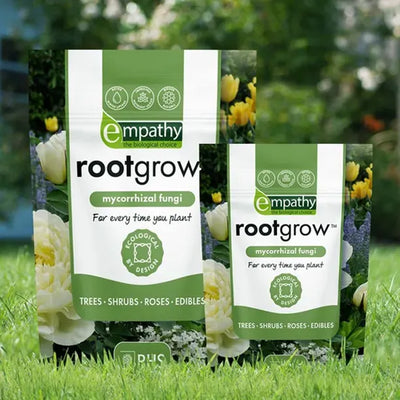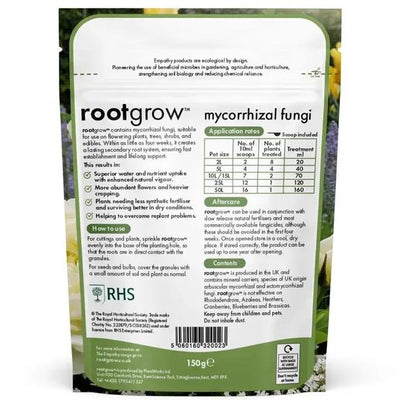 Delivered across the UK
Delivered across the UK Which Best Plant Supplier 2025
Which Best Plant Supplier 2025 1 Year Bareroot Plant Guarantee
1 Year Bareroot Plant Guarantee
About Silver Birch Sapling Trees
Silver Birch Sapling Trees
- Use: Specimen tree, screening, woodland planting
- Not suitable for hedging
- Height: Up to 25m
- Growth: Fast. Upright
- Soil: Most soils except shallow chalk
- Light: Full sun
- Type: Native deciduous tree
- Species: Betula pendula
- Bareroot Delivery: Nov-March Only
- Pot Grown Delivery: Year-round
Appearance, Growth & Uses
Silver Birch is a fast-growing native tree with pretty white bark and an airy, semi-weeping canopy that casts light, dappled shade.
The pale, creamy-white bark is its standout feature, providing year-round interest.
It has small diamond-shaped, mid-green leaves with serrated edges that dangle in fluttering streamers from thin, hanging side-branches.
These turn bright yellow in autumn, looking fantastic against the white bark when backlit by sun.
As a pioneer species, it rapidly colonises openings in forests and riverbanks, growing vigorously to about 25 metres.
The fine branches and sparse foliage create screening that blurs rather than completely blocks views.
It produces catkins in April and May, releasing seeds to the wind, and casts only dappled shade underneath.
Features
- Buy larger Silver Birch trees for instant impact.
- Browse our other birch varieties or our full range of garden trees.
Growing Conditions
- Soil: Most soils, preferably moist
- Light: Full sun essential
- Moisture: Prefers moist conditions, tolerates winter waterlogging
- Avoid: Shallow chalk, shade, constant wind exposure
- Maintenance: Very tough, avoid pruning
- Hardiness: Very hardy
Thrives in most soils, especially acidic ones, preferring heavy clay and moist conditions. Will grow close to rivers and tolerates winter waterlogging.
Must have plenty of sun - will suffer in more than light shade. Won't grow well on shallow chalk.
Responds well to yearly mulching in spring to conserve soil moisture, especially on poorer, drier soils.
Garden Design Ideas
Perfect for underplanting with bluebells due to its dappled shade and native woodland character.
Consider training Clematis in pruning group 3, which are hard pruned in February/March, giving several weeks to appreciate the bare bark before trees leaf out.
Excellent for site regeneration on poor soils - the vigorous growth quickly builds up leaf layers that rot down and improve soil fertility for other plants.
Use for soft screening where you want to blur rather than completely hide views, taking advantage of its light, airy canopy structure.
History & Trivia
Known as Lady of the Woods, it was a very useful tree in the past.
Its bark was used for covering boats, roofing, and even rain hats and cloaks.
A skilled worker could remove the outermost layer of bark without killing the tree. If you want to try your hand at this, late spring is the time.
Silver Birch sap, which tastes like sugary water in spring, can make an unpleasant tasting but effectively alcoholic mead.
Its resin was boiled down to make a decent glue.
Today, it's sometimes used as a coppice tree for firewood, harvested every 3/4 years. It's one of the most convenient firewoods, burning bright and hot even before it's fully dried.
Artist grade charcoal is made from the bark.
Birch is the traditional material for making a sauna whisk, or vihta, which are used to gently flog your sauna buddy.
As if any further reason were necessary to hit someone with a bundle of wet twigs, this is said to improve blood circulation, reduce muscle soreness, and enhance mood, and it may even be good for the person receiving the thrashing as well.
These days, it's common to use Eucalyptus as the whisk for its aroma.













 Secure, One-Tap Checkout
Secure, One-Tap Checkout
 Hand Picked, Delivered to Your Door!
Hand Picked, Delivered to Your Door! 1 Year Bareroot Guarantee
1 Year Bareroot Guarantee



























